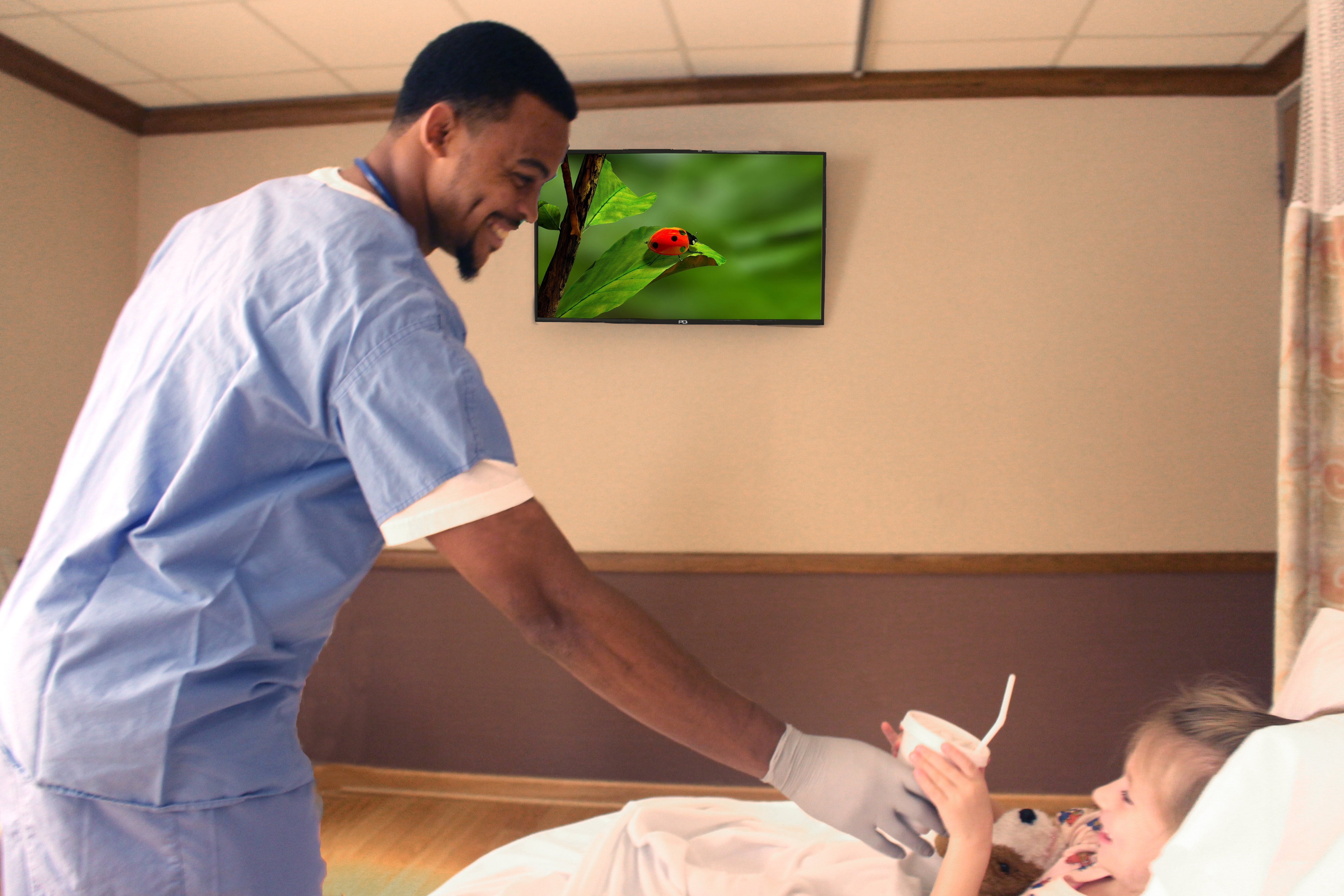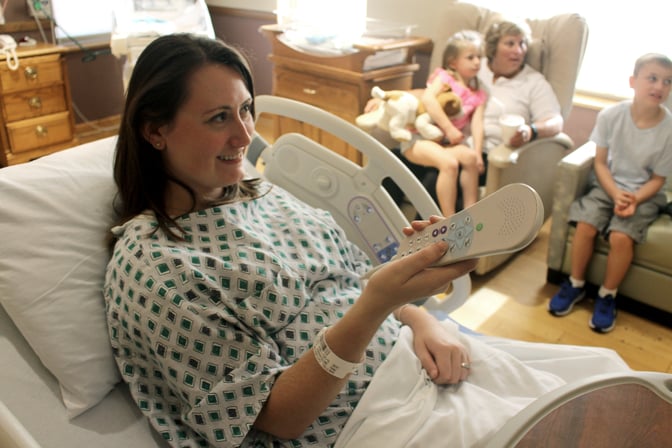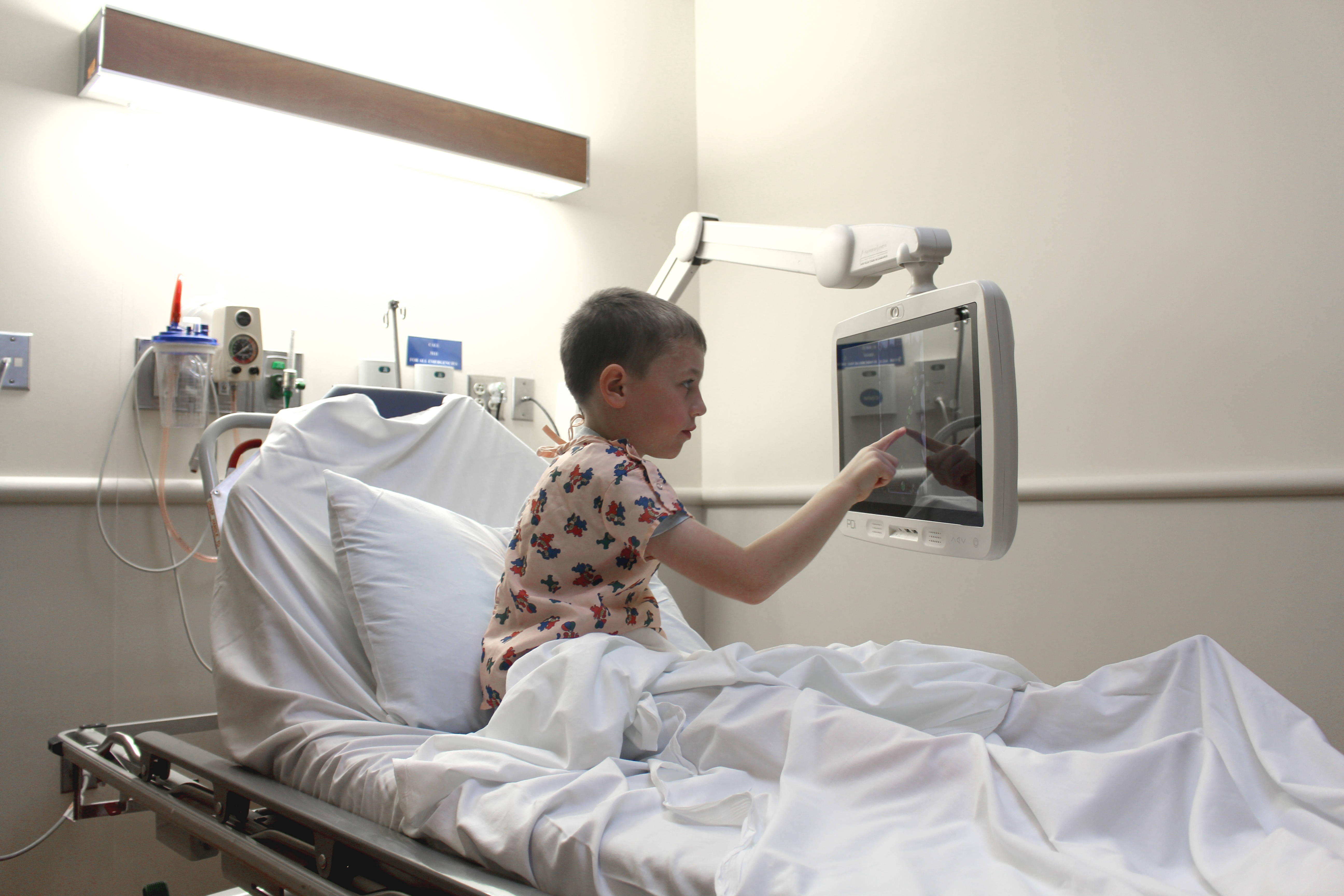How Tablets Can Improve Patient Engagement
Part 2 of the "Different Angles of Patient Engagement" Blog Series Previously, we discussed the experience of a large-screen footwall patient TV....
1 min read
 Erin Todd
:
March 22, 2017
Erin Todd
:
March 22, 2017

In an effort to mirror the average patient's home environment, many healthcare facilities choose a large flat screen healthcare TV and place it on the footwall to liken a cinematic experience. This layout is conducive to entertain a group, but the application can pose challenges to a bedridden patient trying to utilize the interactive patient system. The issue simply boils down to the literal “gap” between the patient and the device causing some unexpected predicaments.
A 42” healthcare television sitting 10 feet away from the patient’s head can resemble the feeling of reading a chart across the room during eye exam, rather than a personal computer interaction. If the patient is nearsighted, unable to wear corrective lenses or unable to focus because of treatment, reading any information on the screen will prove to be a challenge.
Another aspect that affects the patient experience is the control method the patient used to navigate the interactive patient system. Currently, the facility has few options for the patient to control the TV's healthcare software: through a pillow speaker already installed in the room, by providing a wireless keyboard, or a special remote for the “smart TV.” Communicating with the TV through these methods can become cumbersome for the patient if the system and the controls are not cohesive. Trying to make a remote or pillow speaker that was designed to control volume and flip through channels to function like a mouse or keyboard to control a computer does not make for a very good user experience.

Additionally, this display set up across the room may be problematic for HIPAA compliance if the interactive patient system has access to information directly connected to the patient's health records. The “cinematic experience” could inadvertently expose the patient's condition information and private medical history to visitors or non-medical staff simply because the large screen is in everyone’s view in the room.
What are some other positive or negative aspects of cinematic patient wall tvs? Let us know what you think in the comments below!

Part 2 of the "Different Angles of Patient Engagement" Blog Series Previously, we discussed the experience of a large-screen footwall patient TV....

Part 3 of "Different Angles of Patient Engagement" Blog Series Previously, we discussed the experience of a large-screen footwall patient TV and ...

A patient care coordinator works diligently to ensure patients receive the best possible care throughout their healthcare experience. Care...